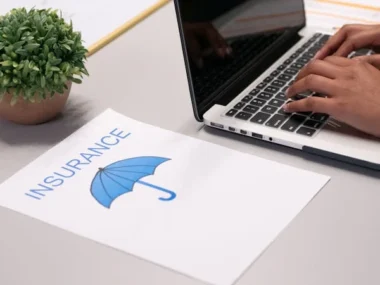
When shopping for auto insurance, many drivers are looking for ways to lower their premiums without sacrificing necessary coverage. Fortunately, there are several strategies you can use to reduce your auto insurance quote. By understanding the factors that influence your premium and making some smart changes, you can save money while ensuring you still have the protection you need. Here are seven proven strategies to help lower your auto insurance quote.
1. Increase Your Deductible
One of the simplest ways to lower your auto insurance premium is by increasing your deductible. The deductible is the amount you’ll have to pay out-of-pocket before your insurance coverage kicks in after a claim.
- How It Helps: By raising your deductible, you reduce the insurer’s potential payout, which lowers your overall premium.
- Example: If you raise your deductible from $500 to $1,000, you might save 10-30% on your premium.
Tip: Make sure you can comfortably afford the higher deductible in the event of a claim before making this change.
2. Take Advantage of Discounts
Auto insurers offer a wide variety of discounts that could reduce your premium. Make sure to ask about these discounts when getting quotes or renewing your policy:
- Multi-Policy Discount: Bundle your auto insurance with other policies, like home or renters insurance, to save on both.
- Good Driver Discount: If you have a clean driving record, many insurers offer discounts for safe driving.
- Low Mileage Discount: If you drive fewer miles than the average driver, you may qualify for a discount.
- Safety Features Discount: Cars equipped with anti-theft devices, airbags, or other safety features may earn you a discount.
- Student Discount: Young drivers with good grades or who complete a driver’s safety course may be eligible for a discount.
Tip: Always ask your insurer about any available discounts that could lower your premium.
3. Improve Your Credit Score
In many states, insurers use your credit score as a factor in determining your auto insurance premium. A higher credit score is often associated with fewer claims, making you a less risky customer for insurers.
- How It Helps: A higher credit score can reduce your premium by signaling to insurers that you are financially responsible.
- Improvement Steps: Paying off debt, making timely bill payments, and checking your credit report for errors can help boost your score.
Tip: Even a small improvement in your credit score can lead to significant savings on your insurance.
4. Consider Usage-Based Insurance
Some insurers offer usage-based insurance (UBI), also known as pay-per-mile or telematics insurance, where your premium is based on how much and how safely you drive.
- How It Helps: If you drive fewer miles or are a safe driver, UBI can lead to lower premiums.
- What You Need to Know: UBI programs use a device installed in your car to track your driving habits, such as speed, braking, and overall mileage. Safe drivers can receive discounts based on their driving behavior.
Tip: UBI is ideal for low-mileage drivers or those who are confident in their safe driving habits.
5. Shop Around and Compare Quotes
Insurance premiums can vary greatly between providers. To ensure you’re getting the best deal, it’s important to regularly shop around and compare quotes from different insurance companies.
- How It Helps: Comparing quotes helps you identify the most competitive rates for your level of coverage.
- What to Do: Use online comparison tools to gather multiple quotes quickly and ensure that you’re not overpaying for the same coverage.
Tip: Even if you’re happy with your current provider, it’s worth comparing quotes annually, as rates and discounts may change over time.
6. Drive a Car That’s Cheaper to Insure
The type of car you drive has a direct impact on your insurance premium. Cars that are expensive to repair, more likely to be stolen, or have high accident rates will typically cost more to insure.
- How It Helps: Choosing a car that’s inexpensive to repair, has good safety ratings, and is less likely to be stolen can lower your premium.
- Example: Compact cars with high safety ratings and low theft rates tend to be cheaper to insure than sports cars or luxury vehicles.
Tip: If you’re in the market for a new car, research insurance costs for different makes and models to find one that’s affordable to insure.
7. Keep Your Coverage Relevant
Make sure you’re not paying for coverage you don’t need. As your car ages, you may be able to drop certain types of coverage.
- How It Helps: As your vehicle depreciates, it may not be worth maintaining full coverage (i.e., collision and comprehensive insurance) if the value of your car is low.
- Example: If your car is worth only a few thousand dollars, consider dropping collision coverage and saving on premiums.
Tip: Review your policy annually and adjust your coverage levels based on the value of your car and changing life circumstances.
Key Takeaways
- Increasing your deductible, taking advantage of discounts, and improving your credit score are some of the easiest ways to lower your auto insurance premiums.
- Shopping around for quotes and considering usage-based insurance are important steps in finding the most affordable coverage.
- Regularly reviewing your policy and adjusting your coverage based on your car’s value and your needs can help you avoid overpaying.
By using these strategies, you can significantly reduce your auto insurance quote while still maintaining the coverage you need. Always make sure to strike a balance between affordability and adequate protection.



